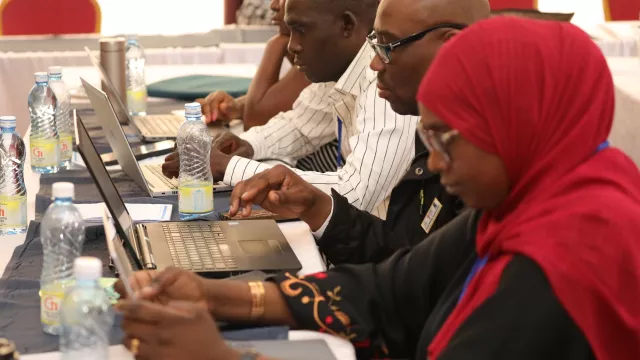Capacity Sharing

Overview
We will drive a culture shift towards more equal and healthier partnerships for capacity sharing between and among CGIAR and partners advancing food, land, and water systems transformation, placing a strong emphasis on gender equality, women’s empowerment, and youth inclusion.
We will integrate innovative approaches in data, digital tools, scaling strategies, and soft-skills programs to build capacities among partners and within CGIAR, working across local, national, regional, and global contexts. This will address the fragmented, top-down, Global North-driven approach which has shaped the traditional capacity development in agricultural research.
Our goal
Our work will contribute to
Where we work
Africa, Asia, South America
Challenges
Challenges we’ll address
- Necessity of skills and knowledge required to equitably drive transformational change to address pressing global challenges – such as demographic shifts, environmental degradation, climate change, geopolitical instability, rising inequalities, and advances in frontier technologies
- Demand to accelerate the transfer, acquisition, sharing, and retention of essential capacities, particularly among partners in the Global South
- An obligation to shift culture toward the decolonization of science in food, land, and water systems
Events
News
-

Strengthening CSO Capacity on Climate and Peace
This post captures key insights from regional training sessions on climate, peace, and resilience conducted with civil society organizations in MENA....
-

Building Local Research Capacity through Time, Trust, and Knowledge Transfer
This blog explores how hybrid mentorship models expand access to research training in Africa. Using the African Climate Mobility Academy, it shows...


